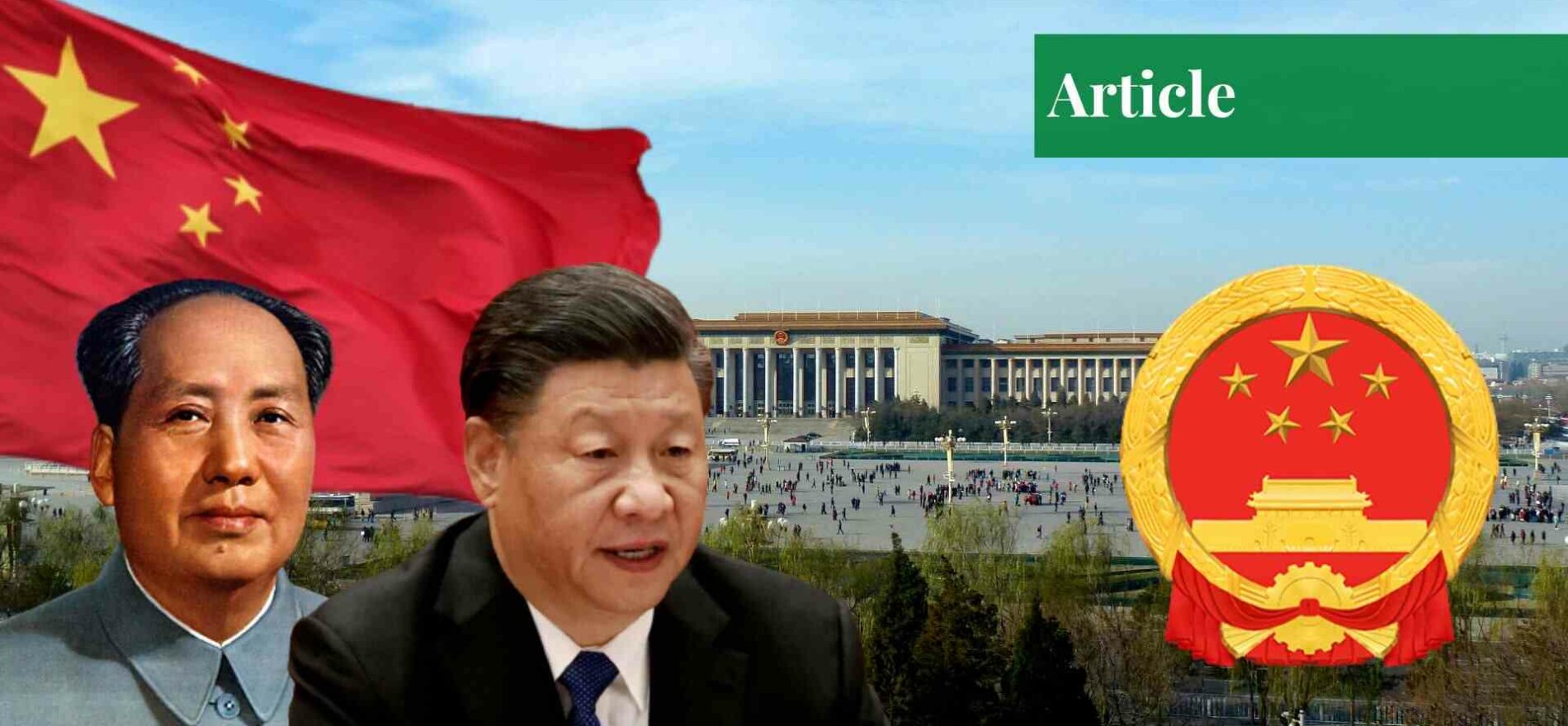Sher Ali Shahid is currently a bachelor’s student at the Department of International Relations, National Defence University, Islamabad.
Introduction
The National Party Congress is a closely watched major gathering of the Chinese Communist Party held about every five years. The Congress provides a clear indication of the power distribution within the leadership and the general approach to both foreign and domestic policies. The 20th Congress of the Chinese Communist Party (CCP) began this year in Beijing on October 16th, 2022.
Its key focus was to choose the members of the Central Committee, which decides whether to grant current General Secretary Xi a third mandate and determines the composition of the Standing Committee of the Politburo (SCPB). In his speech, Xi went into more detail about the Chinese model and agenda, claiming it was tranquil and predicated on upholding the party’s control, attaining shared prosperity, and generating high-quality growth.
Despite prior statements from authorities stressing that the nation does not intend to export its development model, Beijing has expressed a growing desire to improve the global governance system by proposing alternatives to the present system of governance, mostly in the economic realm.
Foreign Policy
China has remained steadfast in its commitment to its foreign policy goals of upholding international harmony and fostering shared development in technology and scientific advancement, as well as advancing the human community with an eye toward the future. Thus, China has consistently pursued an independent foreign policy; it has always declared its stance on policy issues based on its own merits and it has tried to defend the core values that guide international relations and protect human rights.
Moreover, it is devoted to advancing a fresh approach to international affairs, strengthening and growing international organizations in view of high levels of inclusion and openness, and expanding common interests with different nations. The actual practical steps that China is taking in its foreign policy remain calibrated.
Taiwan
China’s relations with the West have gotten worse since the 19th party congress with no immediate signs of improvement, despite the fact that Xi is the country’s most powerful leader since Mao. As international tensions increase over Taiwan, which Beijing views as essential to maintaining its territorial integrity and which is self-governed as a result of a protracted civil war between the Communists and the Nationalists in China, mutual mistrust has grown more entrenched.
Although Xi emphasized that China respects the sovereignty and territorial integrity of all countries, he omitted to bring up Russia’s invasion of Ukraine. In addition, General Secretary Xi asserted that Taiwan’s reunification was China’s problem, and he also reiterated the standard positions on Taiwan, including its right to pursue unprovoked conflict.
Furthermore, he used far gentler language this time while speaking about Taiwan than he had a year earlier at a celebration for the CPC’s centennial. In a statement that was plainly directed at the US, he stated, “The Chinese people will never allow any foreign forces to bully, coerce and enslave us. Whoever attempts to do that will surely break their heads on the steel Great Wall built with the blood and flesh of 1.4 billion of Chinese people.”
Economic Development
Regarding economic measures, Xi pledged to promote a “world-class business environment” that is market and law-based, while also laying out the necessity of a stronger CCP presence, notably in mixed-ownership and non-public firms. He pledged China would continue to support the liberalization of trade and investment while also pressing for considerable self-reliance.
The talks that took place at the 20th Party Congress were mostly about domestic politics. Nevertheless, as nationalism grows in China and as a result of the perceived danger posed by foreign powers, particularly the United States, those two issues are becoming more and more interwoven.
Hong Kong & Macau
Refereed to Hong Kong as a unique regulatory district as recommended by China’s Constitution and a guarantee that Hong Kong is measured by patriots. Regarding Hong Kong and Macau, Xi stressed, “We’ll support Hong Kong and Macau to grow in their economies, improving people’s lives and resolving deep-seated issues and problems in economic and social development so as to promote long-term prosperity and stability. We will assist Hong Kong in better integrating into China’s overall developments and in playing a larger role in achieving National rejuvenation.”
Conclusion
With the recent meeting and statements given out by Chinese officials regarding the world governance system, it is easy to see that China is destined to overcome and change the current system of the world. Moreover, in the economic domain, China is increasing its influence by providing alternatives to nations by creating certain international organizations like Asian Development Bank and challenging the current SWIFT system of trade.
China is ready to provide financial assistance to nations in need by providing loans and expertise but its development model looks more like a trap than helping as its loan interest rates are higher than IMF. China completely dictates the international affairs of nations plus it indirectly annexes the specific territories of the nations in case they are not ready to give back loans.
If you want to submit your articles and/or research papers, please check the Submissions page.
The views and opinions expressed in this article/paper are the author’s own and do not necessarily reflect the editorial position of Paradigm Shift.















